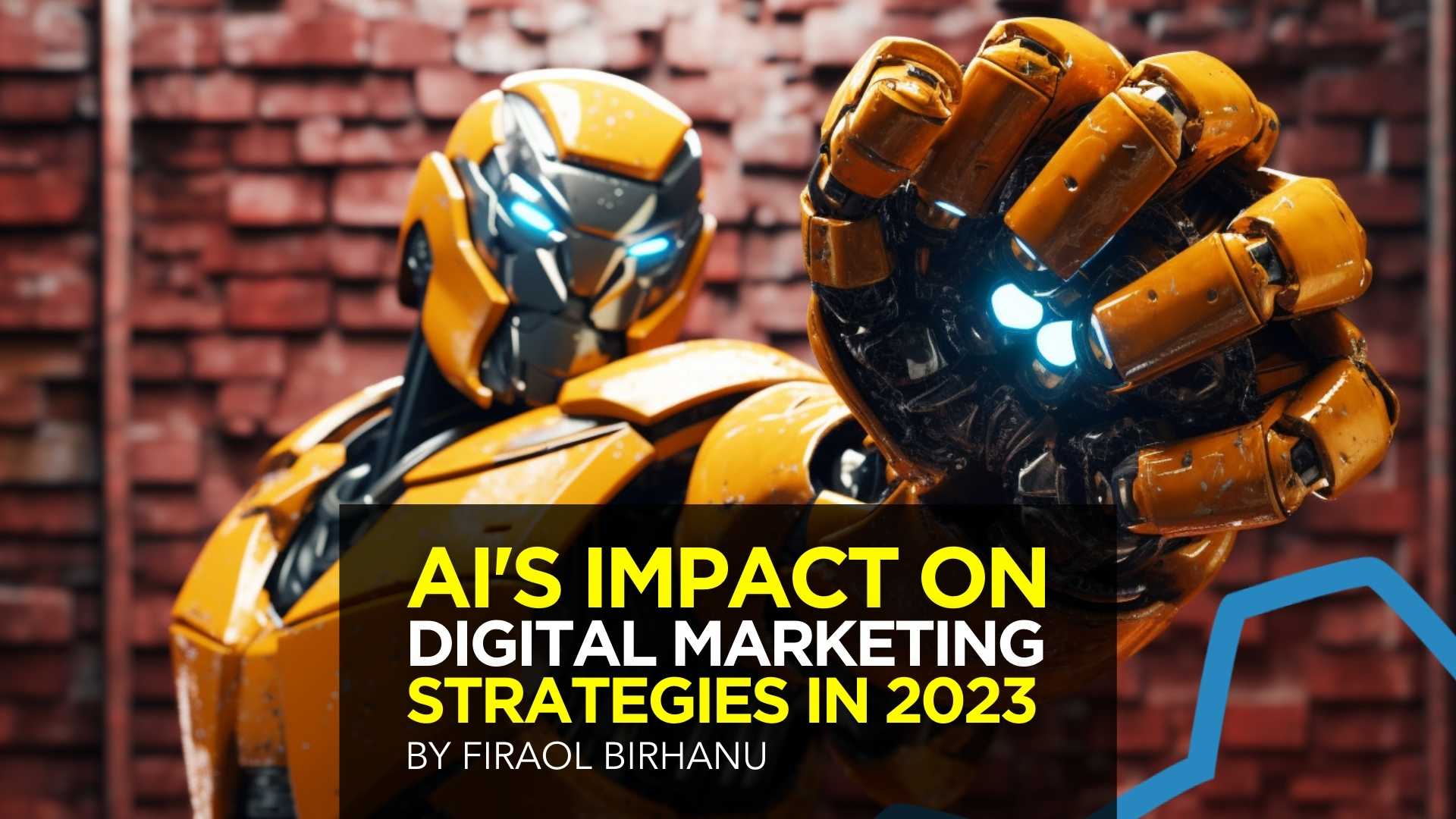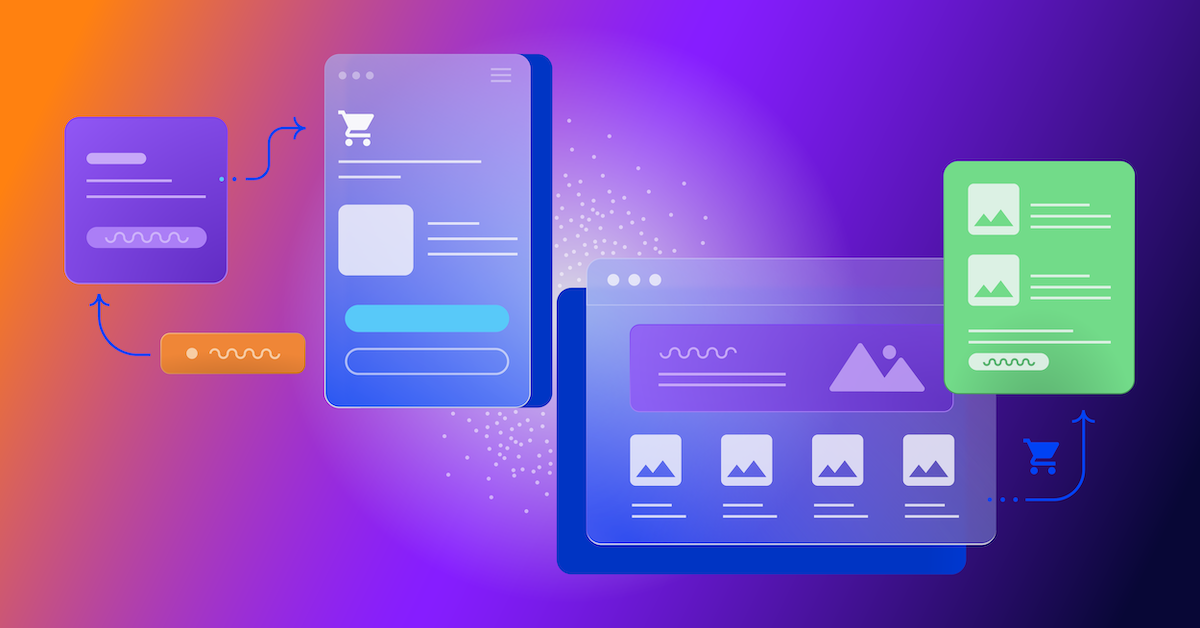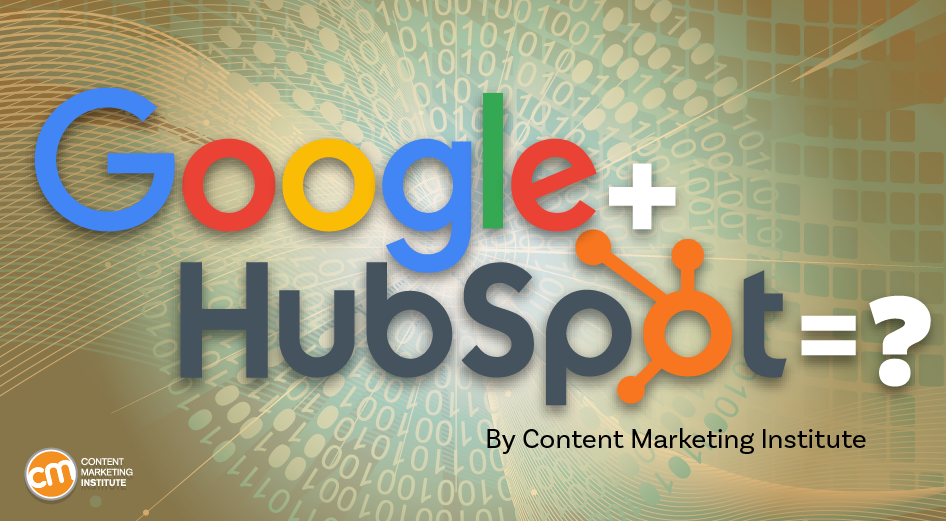MARKETING
AI’s Impact on Digital Marketing Strategies In 2023

Do you know AI is revolutionizing businesses and their marketing plans? Artificial intelligence (AI) has been a hot topic in the digital marketing industry for quite a long time now.
Trends have changed and AI has created a vast difference in working and planning strategies for marketing purposes. Having the ability to gather and analyze large amounts of data in just a few seconds has changed how companies approach the digital market now.
Chatbots
AI-powered chatbots are being used by companies to enhance their productivity, and customer handling, and reduce human efforts. This automated messaging system can be used to help customers with their queries and give them suggestions, also answering a lot of questions at once and being available round-the-clock.
Comprehending customer inquiries and responding appropriately in real-time using artificial intelligence chatbots are being used by companies.
Do Chatbots Market the Business?
Unlike a human being, AI Chatbot does not go out and market your company. However, it is a marketing tool especially on social media, because they can deliver targeted messages on your behalf, collect customer data to help you target messaging, and provide customer service that is beneficial to both the company and the customer.

Chatbots are very good at converting the viewers into buyers just by locating the desired products and asking the customers some specific questions according to the gathered data.
Creating the Content
Content creation is where actual human effort is needed a lot. It takes time, intelligence, ideas, and administration of plans to create high-quality and customer-centered content for marketing purposes.
It is predicted by experts that data generation all over the World is going to be more than 180 zetta-bytes by 2025. And there is no doubt that AI and machine learning will have a significant role in developing and creating the content at that time.
Let’s see how AI content creation is helpful in digital marketing;
- Enhances the Social Media Content Performance:
Social media primarily plays a role in moving customers to their sales funnel. In the same manner, advertisers and marketers make themselves aware of the demographical data of their followers to create social media content that appeals to them.

Are You Ready to Master Social Media?
Become a Certified Social Media Specialist and learn the newest strategies (by social platform) to draw organic traffic to your social media sites.
In this aspect, AI is the game changer. Artificial intelligence-powered tools can go beyond demographics to analyze client behaviors and preferences. This data is used by marketers to make their customer engagement better by refining their SMM actions.
- User-Generated Content (UGC) Can Be Curated:
Do you know that social media users today are incredible content creators and consumers both at the same time? The majority of them base their buying choices on user-generated content (UGC) rather than sponsored material.
UGC is assisting companies in improving their reputation among their competitors. AI technology can be used to keep an eye on social media platforms and track any references made to your brand. This way, you can gather valuable insights and feedback on how consumers perceive your business and services.
Making use of UGC, artificial intelligence is able to filter high-quality customer data. With the help of visual recognition technology not only the textual but also images and video content is identified by AI.
- Upgrades the Personalization:
Customer engagement is enhanced by personalization of the content being created by the company. Do you know AI is the chief in this aspect also?
Personalization is dependent on the company to understand the needs and expectations of the customers. AI collects, analyzes, and transforms the data of customers and makes their personalized profiles and sections.


This information may be used to create highly customized suggestions and interactions in order to engage with your clients effectively. Companies may now build personalized email marketing content using AI rather than generalized email marketing campaigns.
Customer Targeted & Predictive Marketing
The client’s data being collected by companies via AI chatbots is used to generate patterns of future behavior and produce highly focused marketing.
Dynamic yet specific content is emailed by the companies at the right time to their customers with the help of AI. The emails that are sent are also based on the previous activities of the customers.
By collecting the data via customer activity on different web pages, email interactions, or blog reading, AI can efficiently identify which content is more appealing for the customer. This makes the company stay in an audience target business and produce future content according to it.
Moreover, companies can know when the customers are not engaging or not getting appealed, AI again jumps into the situation and makes the profiles more customized to keep the user in touch and towards the company for re-engaging purposes. This re-engaging strategy is done by Churn Prediction.
Why is Churn Prediction Important?
Customer turnover is a common problem faced by companies. Growing the business means getting new clients similarly when a single customer leaves, it impacts the investment negatively. A company can save huge figures by just keeping an eye on their client’s activities and offering them incentives when they seem like leaving.


That is why, understanding what keeps consumers engaged is incredibly valuable knowledge that is nonetheless collected by AI. It aids in the development of retention strategies and the implementation of operational practices targeted at preventing customers from saying goodbye to the company.
Natural Language Generation is Provided by AI
Who is playing a great role in Natural language generation? Yes, AI is at the top of the tools that provide us with NLG.
The pieces of information organized by AI are the main source of NGL. Converting data into natural-sounding text produces a large number of printed words far faster than a normal person.
Companies use this AI influenced Natural Language Generation for the following purposes:
- Advertisement Writing
The natural language generated by AI is intelligent enough to modify itself to a company’s consumer and employ the language and tone most likely to connect with them. This is the turning point in ad creation.
AI-powered NLG writes ads for companies that are audience directed with a huge rate of conversion. These kinds of digital marketing software are becoming a must in this competitive Internet marketing industry.
- Automatic Updates & Revisions
Data is fed into the NLG program by AI, which produces text that resembles human speech based on established templates and rules. Plenty of sources, including statistics from websites, customer reviews, and survey results can provide the information needed.


Social media marketing campaigns are run to benefit the company in various aspects. Artificial intelligence NLG technology may be used in social media marketing campaigns to create social media posts based on popular subjects, updates, and hashtags.
The software would look into the information and produce posts that are interesting to and relevant to the intended audience.
- Generation of Subject Lines
Email marketing is a bombing strategy, but how come it explodes? The subject line of the company’s email should be explosive if the customer is to be attracted.
None other than AI provides appealing subject lines for emails through NLG modules. The email open rates can be increased by using natural language generation to convey and adapt feelings, tone, and phrasing.
Voice Search Optimization
Voice search optimization is getting applause all over the World as many customers prefer voice search rather than typing their query. AI is able to recognize the voice, search the voice keywords, and provide data that is asked. You may be familiar with AI voice recognition tools like Google Home, Alexa, and Amazon Echo.
By utilizing speech recognition and numerous other AI techniques, companies may offer material that AI systems can find more easily, improving the customer’s quality.
By optimizing website content for voice search, companies can improve their search engine rankings for voice queries. This helps the companies to reach a wider audience and increase their visibility all over the internet.



Are You Ready to Master Social Media?
Become a Certified Social Media Specialist and learn the newest strategies (by social platform) to draw organic traffic to your social media sites.
Voice keyword research is a method of raising a website’s efficiency through AI as well as effectiveness for speech-based search inquiries. In this way companies are thought to be digitally available for their customers, converting them into buyers and reducing the consumer churn.
Visual Recognition Technology
AI or in other words, Robots are able to identify some of the human features, this is called visual recognition technology.
AI gathers information based on image recognition through social media platforms. For example, it monitors the image activity and gets insights from a company’s users. It helps companies to know which products and trends are more likely to be seen in their target audience.
Audience engagement and customer quality can be improved a lot more by this technology. Algorithms are set and analyzed by AI itself, this is called machine learning, which plays a great role in AI-powered digital marketing.
There is another way by which image-identifying technology can be helpful. By monitoring image algorithms AI makes the company produce more customer-centered content.


Additionally, using visual recognition technologies will enhance the client experience. Customers can see how things might look on them prior to making any purchase by using interactive product catalogs or online free-trial situations.
Bottomline
Concluding the above discussion, companies are now making use of artificial intelligence (AI) in digital marketing more often. With the use of chatbots, virtual assistants, image recognition, voice recognition, and predictive content, AI has been used to raise customer satisfaction, decrease human efforts, and routine operations, and increase the overall effectiveness of digital advertising campaigns.
While there are many benefits of implementing AI in digital marketing, it’s important for companies to approach it wisely and deliberately.
Intelligent systems that are productive require thorough planning and development, including adhering to the platform’s purpose, selecting the layouts and conversational flow, and training the algorithm to understand and efficiently respond to user needs and requirements.
MARKETING
Ecommerce evolution: Blurring the lines between B2B and B2C

Understanding convergence
B2B and B2C ecommerce are two distinct models of online selling. B2B ecommerce is between businesses, such as wholesalers, distributors, and manufacturers. B2C ecommerce refers to transactions between businesses like retailers and consumer brands, directly to individual shoppers.
However, in recent years, the boundaries between these two models have started to fade. This is known as the convergence between B2B and B2C ecommerce and how they are becoming more similar and integrated.
Source: White Paper: The evolution of the B2B Consumer Buyer (ClientPoint, Jan 2024)
What’s driving this change?
Ever increasing customer expectations
Customers today expect the same level of convenience, speed, and personalization in their B2B transactions as they do in their B2C interactions. B2B buyers are increasingly influenced by their B2C experiences. They want research, compare, and purchase products online, seamlessly transitioning between devices and channels. They also prefer to research and purchase online, using multiple devices and channels.
Forrester, 68% of buyers prefer to research on their own, online . Customers today expect the same level of convenience, speed, and personalization in their B2B transactions as they do in their B2C interactions. B2B buyers are increasingly influenced by their B2C experiences. They want research, compare, and purchase products online, seamlessly transitioning between devices and channels. They also prefer to research and purchase online, using multiple devices and channels
Technology and omnichannel strategies
Technology enables B2B and B2C ecommerce platforms to offer more features and functionalities, such as mobile optimization, chatbots, AI, and augmented reality. Omnichannel strategies allow B2B and B2C ecommerce businesses to provide a seamless and consistent customer experience across different touchpoints, such as websites, social media, email, and physical stores.
However, with every great leap forward comes its own set of challenges. The convergence of B2B and B2C markets means increased competition. Businesses now not only have to compete with their traditional rivals, but also with new entrants and disruptors from different sectors. For example, Amazon Business, a B2B ecommerce platform, has become a major threat to many B2B ecommerce businesses, as it offers a wide range of products, low prices, and fast delivery
“Amazon Business has proven that B2B ecommerce can leverage popular B2C-like functionality” argues Joe Albrecht, CEO / Managing Partner, Xngage. . With features like Subscribe-and-Save (auto-replenishment), one-click buying, and curated assortments by job role or work location, they make it easy for B2B buyers to go to their website and never leave. Plus, with exceptional customer service and promotional incentives like Amazon Business Prime Days, they have created a reinforcing loyalty loop.
And yet, according to Barron’s, Amazon Business is only expected to capture 1.5% of the $5.7 Trillion addressable business market by 2025. If other B2B companies can truly become digital-first organizations, they can compete and win in this fragmented space, too.”
If other B2B companies can truly become digital-first organizations, they can also compete and win in this fragmented space
Joe AlbrechtCEO/Managing Partner, XNGAGE
Increasing complexity
Another challenge is the increased complexity and cost of managing a converging ecommerce business. Businesses have to deal with different customer segments, requirements, and expectations, which may require different strategies, processes, and systems. For instance, B2B ecommerce businesses may have to handle more complex transactions, such as bulk orders, contract negotiations, and invoicing, while B2C ecommerce businesses may have to handle more customer service, returns, and loyalty programs. Moreover, B2B and B2C ecommerce businesses must invest in technology and infrastructure to support their convergence efforts, which may increase their operational and maintenance costs.
How to win
Here are a few ways companies can get ahead of the game:
Adopt B2C-like features in B2B platforms
User-friendly design, easy navigation, product reviews, personalization, recommendations, and ratings can help B2B ecommerce businesses to attract and retain more customers, as well as to increase their conversion and retention rates.
According to McKinsey, ecommerce businesses that offer B2C-like features like personalization can increase their revenues by 15% and reduce their costs by 20%. You can do this through personalization of your website with tools like Product Recommendations that help suggest related products to increase sales.
Focus on personalization and customer experience
B2B and B2C ecommerce businesses need to understand their customers’ needs, preferences, and behaviors, and tailor their offerings and interactions accordingly. Personalization and customer experience can help B2B and B2C ecommerce businesses to increase customer satisfaction, loyalty, and advocacy, as well as to improve their brand reputation and competitive advantage. According to a Salesforce report, 88% of customers say that the experience a company provides is as important as its products or services.
Market based on customer insights
Data and analytics can help B2B and B2C ecommerce businesses to gain insights into their customers, markets, competitors, and performance, and to optimize their strategies and operations accordingly. Data and analytics can also help B2B and B2C ecommerce businesses to identify new opportunities, trends, and innovations, and to anticipate and respond to customer needs and expectations. According to McKinsey, data-driven organizations are 23 times more likely to acquire customers, six times more likely to retain customers, and 19 times more likely to be profitable.
What’s next?
The convergence of B2B and B2C ecommerce is not a temporary phenomenon, but a long-term trend that will continue to shape the future of ecommerce. According to Statista, the global B2B ecommerce market is expected to reach $20.9 trillion by 2027, surpassing the B2C ecommerce market, which is expected to reach $10.5 trillion by 2027. Moreover, the report predicts that the convergence of B2B and B2C ecommerce will create new business models, such as B2B2C, B2A (business to anyone), and C2B (consumer to business).
Therefore, B2B and B2C ecommerce businesses need to prepare for the converging ecommerce landscape and take advantage of the opportunities and challenges it presents. Here are some recommendations for B2B and B2C ecommerce businesses to navigate the converging landscape:
- Conduct a thorough analysis of your customers, competitors, and market, and identify the gaps and opportunities for convergence.
- Develop a clear vision and strategy for convergence, and align your goals, objectives, and metrics with it.
- Invest in technology and infrastructure that can support your convergence efforts, such as cloud, mobile, AI, and omnichannel platforms.
- Implement B2C-like features in your B2B platforms, and vice versa, to enhance your customer experience and satisfaction.
- Personalize your offerings and interactions with your customers, and provide them with relevant and valuable content and solutions.
- Leverage data and analytics to optimize your performance and decision making, and to innovate and differentiate your business.
- Collaborate and partner with other B2B and B2C ecommerce businesses, as well as with other stakeholders, such as suppliers, distributors, and customers, to create value and synergy.
- Monitor and evaluate your convergence efforts, and adapt and improve them as needed.
By following these recommendations, B2B and B2C ecommerce businesses can bridge the gap between their models and create a more integrated and seamless ecommerce experience for their customers and themselves.
MARKETING
Streamlining Processes for Increased Efficiency and Results

How can businesses succeed nowadays when technology rules? With competition getting tougher and customers changing their preferences often, it’s a challenge. But using marketing automation can help make things easier and get better results. And in the future, it’s going to be even more important for all kinds of businesses.
So, let’s discuss how businesses can leverage marketing automation to stay ahead and thrive.
Benefits of automation marketing automation to boost your efforts
First, let’s explore the benefits of marketing automation to supercharge your efforts:
Marketing automation simplifies repetitive tasks, saving time and effort.
With automated workflows, processes become more efficient, leading to better productivity. For instance, automation not only streamlines tasks like email campaigns but also optimizes website speed, ensuring a seamless user experience. A faster website not only enhances customer satisfaction but also positively impacts search engine rankings, driving more organic traffic and ultimately boosting conversions.
Automation allows for precise targeting, reaching the right audience with personalized messages.
With automated workflows, processes become more efficient, leading to better productivity. A great example of automated workflow is Pipedrive & WhatsApp Integration in which an automated welcome message pops up on their WhatsApp
within seconds once a potential customer expresses interest in your business.
Increases ROI
By optimizing campaigns and reducing manual labor, automation can significantly improve return on investment.
Leveraging automation enables businesses to scale their marketing efforts effectively, driving growth and success. Additionally, incorporating lead scoring into automated marketing processes can streamline the identification of high-potential prospects, further optimizing resource allocation and maximizing conversion rates.
Harnessing the power of marketing automation can revolutionize your marketing strategy, leading to increased efficiency, higher returns, and sustainable growth in today’s competitive market. So, why wait? Start automating your marketing efforts today and propel your business to new heights, moreover if you have just learned ways on how to create an online business
How marketing automation can simplify operations and increase efficiency
Understanding the Change
Marketing automation has evolved significantly over time, from basic email marketing campaigns to sophisticated platforms that can manage entire marketing strategies. This progress has been fueled by advances in technology, particularly artificial intelligence (AI) and machine learning, making automation smarter and more adaptable.
One of the main reasons for this shift is the vast amount of data available to marketers today. From understanding customer demographics to analyzing behavior, the sheer volume of data is staggering. Marketing automation platforms use this data to create highly personalized and targeted campaigns, allowing businesses to connect with their audience on a deeper level.
The Emergence of AI-Powered Automation
In the future, AI-powered automation will play an even bigger role in marketing strategies. AI algorithms can analyze huge amounts of data in real-time, helping marketers identify trends, predict consumer behavior, and optimize campaigns as they go. This agility and responsiveness are crucial in today’s fast-moving digital world, where opportunities come and go in the blink of an eye. For example, we’re witnessing the rise of AI-based tools from AI website builders, to AI logo generators and even more, showing that we’re competing with time and efficiency.
Combining AI-powered automation with WordPress management services streamlines marketing efforts, enabling quick adaptation to changing trends and efficient management of online presence.
Moreover, AI can take care of routine tasks like content creation, scheduling, and testing, giving marketers more time to focus on strategic activities. By automating these repetitive tasks, businesses can work more efficiently, leading to better outcomes. AI can create social media ads tailored to specific demographics and preferences, ensuring that the content resonates with the target audience. With the help of an AI ad maker tool, businesses can efficiently produce high-quality advertisements that drive engagement and conversions across various social media platforms.
Personalization on a Large Scale
Personalization has always been important in marketing, and automation is making it possible on a larger scale. By using AI and machine learning, marketers can create tailored experiences for each customer based on their preferences, behaviors, and past interactions with the brand.
This level of personalization not only boosts customer satisfaction but also increases engagement and loyalty. When consumers feel understood and valued, they are more likely to become loyal customers and brand advocates. As automation technology continues to evolve, we can expect personalization to become even more advanced, enabling businesses to forge deeper connections with their audience. As your company has tiny homes for sale California, personalized experiences will ensure each customer finds their perfect fit, fostering lasting connections.
Integration Across Channels
Another trend shaping the future of marketing automation is the integration of multiple channels into a cohesive strategy. Today’s consumers interact with brands across various touchpoints, from social media and email to websites and mobile apps. Marketing automation platforms that can seamlessly integrate these channels and deliver consistent messaging will have a competitive edge. When creating a comparison website it’s important to ensure that the platform effectively aggregates data from diverse sources and presents it in a user-friendly manner, empowering consumers to make informed decisions.
Omni-channel integration not only betters the customer experience but also provides marketers with a comprehensive view of the customer journey. By tracking interactions across channels, businesses can gain valuable insights into how consumers engage with their brand, allowing them to refine their marketing strategies for maximum impact. Lastly, integrating SEO services into omni-channel strategies boosts visibility and helps businesses better understand and engage with their customers across different platforms.
The Human Element
While automation offers many benefits, it’s crucial not to overlook the human aspect of marketing. Despite advances in AI and machine learning, there are still elements of marketing that require human creativity, empathy, and strategic thinking.
Successful marketing automation strikes a balance between technology and human expertise. By using automation to handle routine tasks and data analysis, marketers can focus on what they do best – storytelling, building relationships, and driving innovation.
Conclusion
The future of marketing automation looks promising, offering improved efficiency and results for businesses of all sizes.
As AI continues to advance and consumer expectations change, automation will play an increasingly vital role in keeping businesses competitive.
By embracing automation technologies, marketers can simplify processes, deliver more personalized experiences, and ultimately, achieve their business goals more effectively than ever before.
MARKETING
Will Google Buy HubSpot? | Content Marketing Institute

Google + HubSpot. Is it a thing?
This week, a flurry of news came down about Google’s consideration of purchasing HubSpot.
The prospect dismayed some. It delighted others.
But is it likely? Is it even possible? What would it mean for marketers? What does the consideration even mean for marketers?
Well, we asked CMI’s chief strategy advisor, Robert Rose, for his take. Watch this video or read on:
Why Alphabet may want HubSpot
Alphabet, the parent company of Google, apparently is contemplating the acquisition of inbound marketing giant HubSpot.
The potential price could be in the range of $30 billion to $40 billion. That would make Alphabet’s largest acquisition by far. The current deal holding that title happened in 2011 when it acquired Motorola Mobility for more than $12 billion. It later sold it to Lenovo for less than $3 billion.
If the HubSpot deal happens, it would not be in character with what the classic evil villain has been doing for the past 20 years.
At first glance, you might think the deal would make no sense. Why would Google want to spend three times as much as it’s ever spent to get into the inbound marketing — the CRM and marketing automation business?
At a second glance, it makes a ton of sense.
I don’t know if you’ve noticed, but I and others at CMI spend a lot of time discussing privacy, owned media, and the deprecation of the third-party cookie. I just talked about it two weeks ago. It’s really happening.
All that oxygen being sucked out of the ad tech space presents a compelling case that Alphabet should diversify from third-party data and classic surveillance-based marketing.
Yes, this potential acquisition is about data. HubSpot would give Alphabet the keys to the kingdom of 205,000 business customers — and their customers’ data that almost certainly numbers in the tens of millions. Alphabet would also gain access to the content, marketing, and sales information those customers consumed.
Conversely, the deal would provide an immediate tip of the spear for HubSpot clients to create more targeted programs in the Alphabet ecosystem and upload their data to drive even more personalized experiences on their own properties and connect them to the Google Workspace infrastructure.
When you add in the idea of Gemini, you can start to see how Google might monetize its generative AI tool beyond figuring out how to use it on ads on search results pages.
What acquisition could mean for HubSpot customers
I may be stretching here but imagine this world. As a Hubspoogle customer, you can access an interface that prioritizes your owned media data (e.g., your website, your e-commerce catalog, blog) when Google’s Gemini answers a question).
Recent reports also say Google may put up a paywall around the new premium features of its artificial intelligence-powered Search Generative Experience. Imagine this as the new gating for marketing. In other words, users can subscribe to Google’s AI for free, but Hubspoogle customers can access that data and use it to create targeted offers.
The acquisition of HubSpot would immediately make Google Workspace a more robust competitor to Microsoft 365 Office for small- and medium-sized businesses as they would receive the ADDED capability of inbound marketing.
But in the world of rented land where Google is the landlord, the government will take notice of the acquisition. But — and it’s a big but, I cannot lie (yes, I just did that). The big but is whether this acquisition dance can happen without going afoul of regulatory issues.
Some analysts say it should be no problem. Others say, “Yeah, it wouldn’t go.” Either way, would anybody touch it in an election year? That’s a whole other story.
What marketers should realize
So, what’s my takeaway?
It’s a remote chance that Google will jump on this hard, but stranger things have happened. It would be an exciting disruption in the market.
The sure bet is this. The acquisition conversation — as if you needed more data points — says getting good at owned media to attract and build audiences and using that first-party data to provide better communication and collaboration with your customers are a must.
It’s just a matter of time until Google makes a move. They might just be testing the waters now, but they will move here. But no matter what they do, if you have your customer data house in order, you’ll be primed for success.
HANDPICKED RELATED CONTENT:
Cover image by Joseph Kalinowski/Content Marketing Institute
-

 MARKETING6 days ago
MARKETING6 days agoRoundel Media Studio: What to Expect From Target’s New Self-Service Platform
-

 SEO6 days ago
SEO6 days agoGoogle Limits News Links In California Over Proposed ‘Link Tax’ Law
-
SEARCHENGINES6 days ago
Daily Search Forum Recap: April 12, 2024
-

 SEO5 days ago
SEO5 days ago10 Paid Search & PPC Planning Best Practices
-

 SEARCHENGINES5 days ago
SEARCHENGINES5 days agoGoogle Core Update Volatility, Helpful Content Update Gone, Dangerous Google Search Results & Google Ads Confusion
-

 SEO7 days ago
SEO7 days agoGoogle Unplugs “Notes on Search” Experiment
-

 MARKETING6 days ago
MARKETING6 days ago2 Ways to Take Back the Power in Your Business: Part 2
-

 MARKETING4 days ago
MARKETING4 days ago5 Psychological Tactics to Write Better Emails















